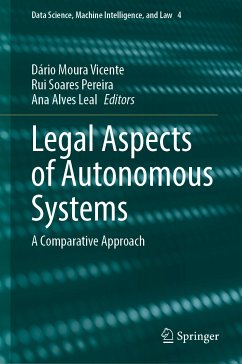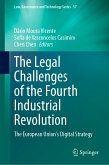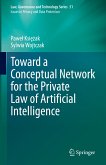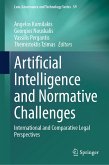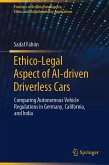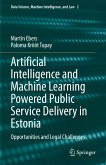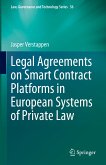The main purpose of this book is to identify and explore possible trajectories for the development of civil and criminal liability; for our understanding of the attribution link to autonomous systems; and, in particular, for the punishment of unlawful conduct in connection with their operation. AI decision-making processes - including judicial sentencing - also warrant close attention in this regard.
Since AI is moving faster than the process of regulatory recalibration, this book provides valuable insights on its redesign and on the harmonization, at the European level, of the current regulatory frameworks, in order to keep pace with technological changes.
Providing a broader and more comprehensive picture of the legal challenges posed by autonomous systems, this book covers a wide range of topics, including the regulation of autonomous vehicles, data protection and governance, personality rights, intellectual property, corporate governance, and contract conclusion and termination issues arising from automated decisions, blockchain technology and AI applications, particularly in the banking and finance sectors.
The authors are legal experts from around the world with extensive academic and/or practical experience in these areas.
Dieser Download kann aus rechtlichen Gründen nur mit Rechnungsadresse in A, B, BG, CY, CZ, D, DK, EW, E, FIN, F, GR, HR, H, IRL, I, LT, L, LR, M, NL, PL, P, R, S, SLO, SK ausgeliefert werden.

